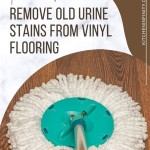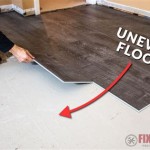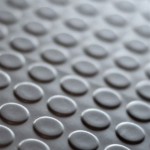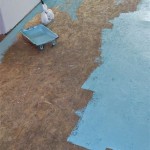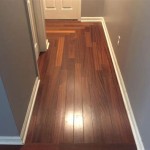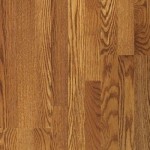Is Cork Flooring Waterproof?
Cork flooring has emerged as a popular choice for homeowners seeking an eco-friendly and comfortable surface. Its natural resilience, warmth, and sound-dampening properties make it an attractive alternative to traditional flooring options like hardwood, tile, or laminate. However, a crucial question often arises when considering cork flooring: is it waterproof? To answer this question comprehensively, one needs to understand the inherent properties of cork, the different types of cork flooring available, and the application and maintenance practices that influence its water resistance.
Cork is harvested from the bark of the cork oak tree, primarily found in the Mediterranean region. The tree's bark regenerates after each harvesting, making it a sustainable resource. The unique cellular structure of cork, composed of millions of tiny air-filled cells, contributes to its characteristic qualities, including its elasticity, thermal insulation, and impact resistance. While cork possesses inherent water-resistant properties due to the presence of suberin, a waxy substance, it is not inherently waterproof. Prolonged exposure to standing water can cause damage, leading to warping, swelling, and mold growth.
The term "waterproof" implies complete impermeability to water, regardless of the duration or intensity of exposure. Cork, in its natural state, does not meet this criterion. However, the degree of water resistance can be significantly enhanced through manufacturing processes and surface treatments. Therefore, understanding the nuances of different cork flooring types is essential in determining their suitability for moisture-prone areas such as bathrooms, kitchens, and basements.
Types of Cork Flooring and Their Water Resistance
Cork flooring is available in various forms, each offering different levels of water resistance and suitability for diverse applications. These types include cork tiles, cork planks, and floating cork floors. The manufacturing process and the surface finishes applied play a crucial role in determining their overall performance in wet environments.
Cork Tiles: Cork tiles are individual pieces of cork that are typically glued directly to a subfloor. Their water resistance is generally lower compared to cork planks or floating floors because the seams between the tiles provide potential entry points for water. While a high-quality sealant can improve water resistance, it's essential to ensure proper installation to minimize the risk of water penetration.
Cork Planks: Cork planks are similar to laminate or engineered hardwood flooring in their construction. They are typically thicker than cork tiles and often feature a tongue-and-groove system that creates a tighter seal between the planks. This design enhances the water resistance compared to cork tiles. However, the core material of the plank, which may be made of high-density fiberboard (HDF) or other wood-based composites, can be susceptible to water damage if the surface finish is compromised.
Floating Cork Floors: Floating cork floors are designed to be installed without the need for glue or nails. They utilize an interlocking system that creates a continuous surface. While the interlocking system can improve water resistance to some extent, the subfloor and the edges of the flooring remain vulnerable to moisture. Some floating cork floors feature a waterproof core, often made of composite materials, which significantly enhances their water resistance. These types are more suitable for areas prone to moisture.
The surface finish applied to cork flooring is a critical factor in determining its water resistance. Several types of finishes are commonly used, including polyurethane, wax, and water-based sealants. Polyurethane finishes are generally more durable and water-resistant than wax finishes. Water-based sealants offer a balance between durability and environmental friendliness but might require more frequent reapplication to maintain optimal water resistance. Careful selection of the surface finish is essential to match the demands of the environment where the cork flooring will be installed.
Factors Affecting Cork Flooring's Water Resistance
Beyond the type of cork flooring and the surface finish, several other factors influence its performance in wet environments. These include the quality of the installation, the level of maintenance, and the extent of water exposure. Proper installation is paramount in preventing water damage. Incorrect installation can lead to gaps and uneven surfaces, providing pathways for water penetration. Professional installation is often recommended, especially in areas with high moisture levels.
Regular maintenance is also crucial. This includes sweeping or vacuuming to remove dirt and debris, which can scratch or damage the surface finish, making it more vulnerable to water. Spills should be cleaned up immediately to prevent them from seeping into the cork. Periodic reapplication of the surface finish may be necessary to maintain its water resistance. The frequency of reapplication depends on the type of finish and the level of traffic the floor experiences.
The extent of water exposure is a significant determinant of cork flooring's longevity. Occasional spills and splashes are generally manageable with prompt cleanup. However, prolonged exposure to standing water, such as from leaks or floods, can cause significant damage. In areas prone to flooding, it is advisable to choose a different flooring material altogether. In areas with high humidity, it is important to ensure proper ventilation to prevent moisture buildup, which can lead to mold growth and deterioration of the cork.
Enhancing Water Resistance of Cork Flooring
While cork flooring is not inherently waterproof, it is possible to take steps to enhance its water resistance and make it more suitable for use in areas where moisture is a concern. These measures involve selecting the appropriate type of cork flooring, applying a high-quality sealant, and implementing preventive maintenance practices.
Choosing a cork flooring product specifically designed for wet environments is the first crucial step. These products often feature a waterproof core and a durable surface finish that provides a barrier against water penetration. It is important to carefully review the product specifications and warranty information to ensure that it meets the specific requirements of the intended application. Products marketed as "water-resistant" should be carefully evaluated to determine the degree of water resistance offered.
Applying a high-quality sealant to the seams and edges of the cork flooring can further enhance its water resistance. This is particularly important for cork tiles and planks, where the seams represent vulnerable points for water entry. The sealant should be specifically designed for use with cork and should be applied according to the manufacturer's instructions. Regular inspection and reapplication of the sealant may be necessary to maintain its effectiveness.
Implementing preventive maintenance practices is also essential for prolonging the life of cork flooring in moisture-prone areas. This includes promptly cleaning up spills, using mats and rugs in high-traffic areas, and ensuring adequate ventilation to prevent moisture buildup. It is also advisable to avoid using abrasive cleaners or harsh chemicals, which can damage the surface finish and compromise its water resistance. Regular sweeping and vacuuming can help prevent the accumulation of dirt and debris that can scratch the surface.
In conclusion, while cork flooring possesses inherent water-resistant properties, it is not inherently waterproof. The type of cork flooring, the surface finish, the quality of the installation, the level of maintenance, and the extent of water exposure all play a crucial role in determining its performance in wet environments. By carefully considering these factors and taking appropriate measures to enhance water resistance, it is possible to use cork flooring successfully in a variety of applications, including bathrooms, kitchens, and basements. However, it is always important to exercise caution and to select a flooring material that is appropriate for the specific conditions of the environment.

Water Resistance Floors Go Cork Flooring Tiles Cancork

Waterproof Cork Flooring Look

Is Forna Cork Flooring Tile And Underlayment Waterproof Icork Floor

Is There Waterproof Cork Flooring In Portland

Water Resistance Floors Go Cork Flooring Tiles Cancork

Waterproof Lvt Cork Roy S Flooring

Waterproof Cork Flooring How Is It Actually Watertight Building Renewable

Do Water Resistant Cork Floorings Exist Wicanders

Wise By Amorim 100 Waterproof Cork Flooring In Lane Antracite

Linea Dark 7 16 11mm Swiss Real Cork Floating Flin11 Icork Floor
Related Posts

